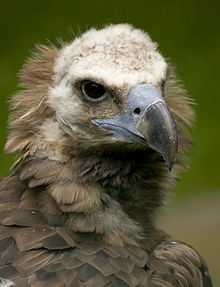Cinereous
From Wikipedia, the free encyclopedia
| Cinereous | |
|---|---|
| Hex triplet | #98817B |
| sRGBB (r, g, b) | (152, 129, 123) |
| CMYKH (c, m, y, k) | (0, 15, 19, 40) |
| HSV (h, s, v) | (12°, 19%, 60[1]%) |
| Source | Maerz and Paul[2] |
|
B: Normalized to [0–255] (byte) H: Normalized to [0–100] (hundred) | |
Cinereous is a colour, meaning ashy grey in appearance, either consisting of or resembling ashes, or a grey colour tinged with coppery brown. It is derived from the Latin cinereous, from cinis (ashes).
The first recorded use of cinereous as a colour name in English was in 1661.[3]
Cinereous in nature
- The colour name cinereous is used especially in the names of birds with ash grey plumage with a slight coppery brown tinge, including the Cinereous Antshrike (Thamnomanes caesius), Cinereous Becard (Pachyramphus rufus), Cinereous Bunting (Emberiza cineracea), Cinereous Conebill (Conirostrum cinereum), Cinereous Finch (Piezorhina cinerea), Cinereous Ground-tyrant (Muscisaxicola cinereus), Cinereous Harrier (Circus cinereus), Cinereous Mourner (Laniocera hypopyrra), Cinereous-breasted Spinetail (Synallaxis hypospodia), Cinereous Tinamou (Crypturellus cinereus), Cinereous Tyrant (Knipolegus striaticeps), Cinereous Vulture (Aegypius monachus), and Cinereous Warbling-finch (Poospiza cinerea).
- However, the colours of these birds may be brighter to the birds themselves since birds are tetrachromats and can see colours in the ultraviolet range that are invisible to humans, who are trichromats.[4]
See also
| Look up cinereous in Wiktionary, the free dictionary. |
- Animal colouration
- List of colours
References
- ↑ "Color Conversion Tool set to hex code of color #98817B (Cinereous):". Web.forret.com. Retrieved 2012-06-12.
- ↑ Maerz and Paul A Dictionary of Color New York:1930 McGraw-Hill Color Sample of Cinereous: Page 93 Plate 35 Color Sample A3
- ↑ Maerz and Paul A Dictionary of Color New York:1930 McGraw-Hill Page 193; Color Sample of Cinereous: Page 93 Plate 35 Color Sample A3
- ↑ Goldsmith, Timothy H. "What Birds See" (PDF). Scientific American | July 2006—Article about the tetrachromatic vision of birds. csulb.edu.
External links
| ||||||||||||||||||||||||||||||||||||||||||||||||
This article is issued from Wikipedia. The text is available under the Creative Commons Attribution/Share Alike; additional terms may apply for the media files.


